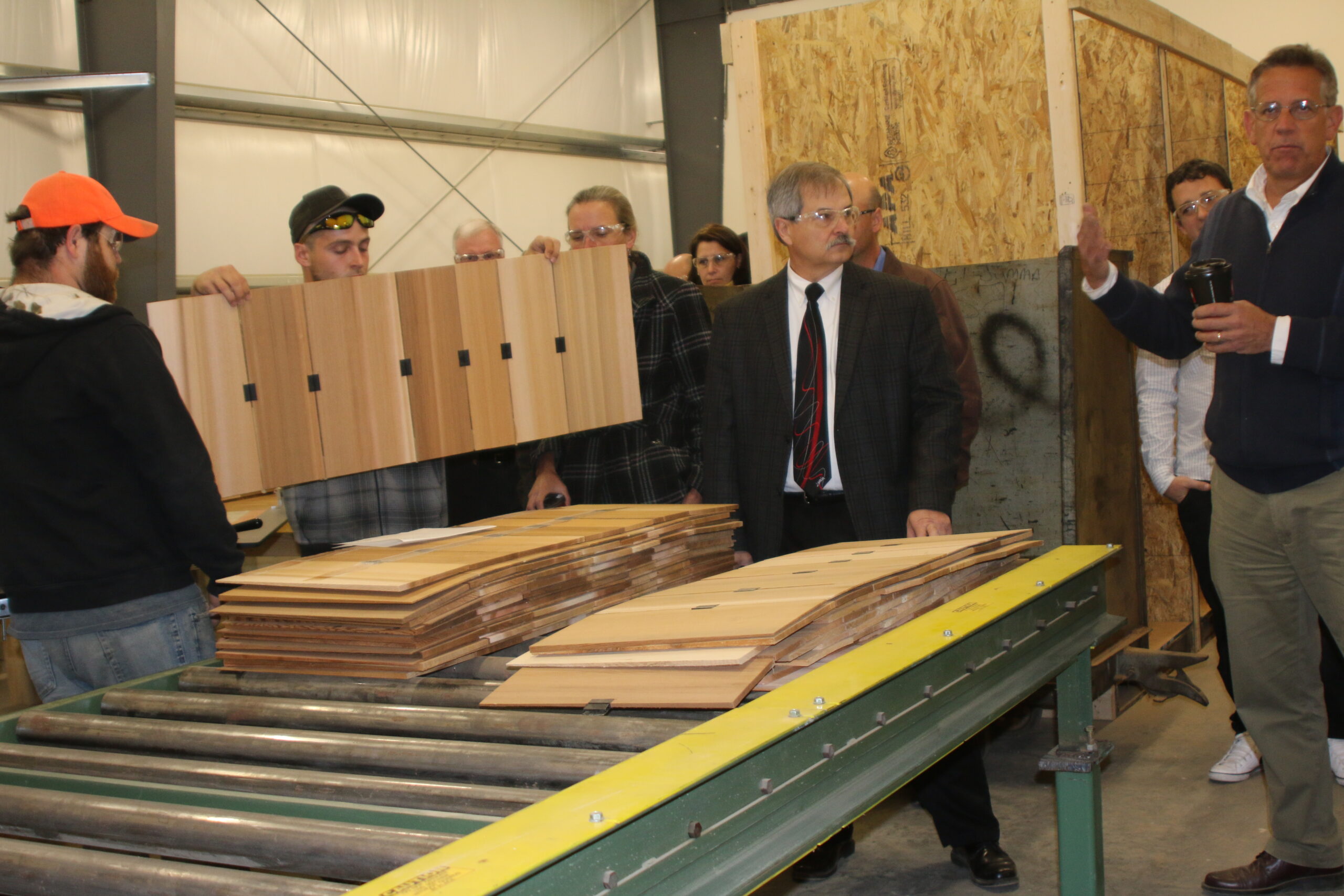
ASHLAND, Maine — Ecoshel, the Ashland-based maker of cedar shingles, is moving its red cedar shingle business to British Columbia, but still has plans for its facilities in Ashland and Portland.
According to company founder and CEO Bryan Kirkey, Ecoshel was hit with two major problems in its business model of making western red shingles from Ashland — delays in starting an automated production line and new duties on imported red cedar from Canada.
“The recently imposed tariff on Canadian forest products has made it impractical for Ecoshel to continue producing western red shingles in Ashland,” Kirkey said in a media release.
The company opened its Ashland plant in 2014, near the former Fraser Papers mill, with the aim of manufacturing advanced cedar shingle building products with local white cedar and imported red cedar from British Columbia. In the process, Kirkey wanted to use new automated technology to “bring the shingle industry back to the states” and compete with Canadian shingle makers.
In April, the U.S. Department of Commerce announced that it would be leveling tariffs ranging from 3 to 24 percent on imported Canadian lumber, after decades of complaints from American timber companies who say their northern competitors are unfairly subsidized.
Kirkey said that there is no tariff being imposed on western red cedar shingles exported from Canada, but that there is a “significant duty on the cedar cants that Ecoshel imports to Ashland for shingle production.” Cants are logs that have had a slab taken off each of its four sides to form square edges.
Ecoshel suffered a major business setback when its automated production system, programmed by an engineering company, “did not work,” Kirkey said. The company had to use manual production and was forced to cancel orders until the automated production line was fixed, Kirkey said.
The automated line was fixed, but just at the same time that western red shingle prices increased, Kirkey said. Before the production stopped in Ashland, Echoshel employed 30 people in Maine, with most of them working out of the Ashland mill.
Ecoshel stopped production at its Ashland facility in late July and has kept on two employees during the transition, Kirkey said.
He said Ecoshel is now involved in a partnership with a British Columbia-based company to produce western red cedar shingles at a location in the western Canadian province.
The assembly, finishing, and distribution of these shingles will take place at Ecoshel’s Portland facility, while the Ashland mill will be prepared to produce a white cedar version of the product from local lumber, Kirkey said.
In Ashland, it “will be at least a year before that development begins,” Kirkey said.
“There is potential for the white cedar production in Ashland to provide even more jobs, if plans to market the white cedar version of the product through a major DIY retailer are successful,” Kirkey said, adding that the company has begun testing a new finishing system for the white cedar.







